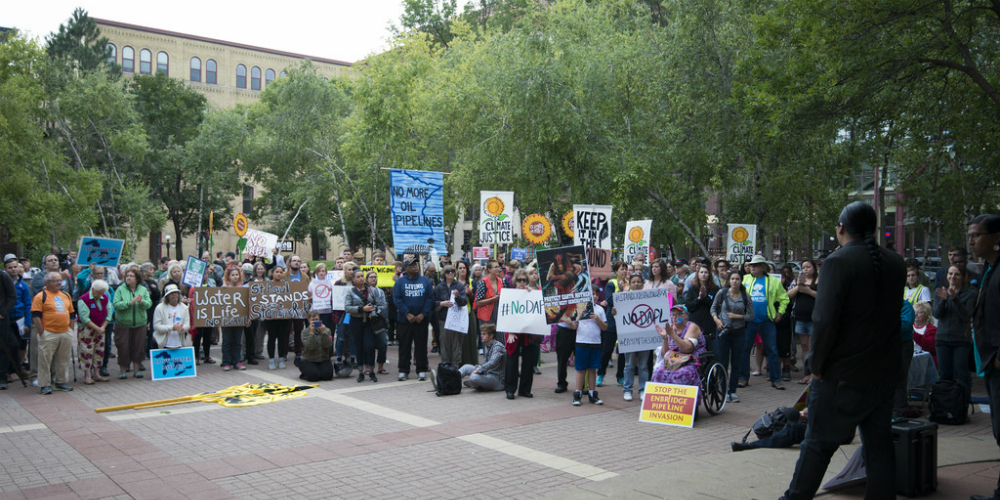Sunday night, more than 100,000 people watched live coverage on social media of a showdown between Dakota Access Pipeline protesters and police. The audience posted thousands of comments, many of which urged Americans to close their big bank accounts, because the institutions provide loans and other financial services to the oil companies building the pipeline.
Coverage of DAPL has focused on the demonstrations themselves, but the underlying issue for protestors is the pipeline’s potential to damage the environment – especially local water supplies – and continued development of the oil industry instead of alternative power sources.
I was among those watching on Facebook. The confrontation was riveting, but what struck me was the fact that among all those comments disparaging big banks, not one person among the online audience urged others to move their bank accounts to credit unions. Likewise, the protester broadcasting the event mentioned the need to abandon big banks several times, but never once mentioned credit unions as an alternative.
This missed opportunity has been ongoing. Overshadowed by the Trump protests, some major bank branches in cities across the country were forced to close last Wednesday due to consumers marching in opposition to the banks' support of the pipeline. Wells Fargo, Bank of America, Chase, Citibank and HSBC were targets.
On social media, a few posts that include the hashtag #bankexit have shown consumers closing their bank accounts and opening accounts at credit unions. However, social media searches of #bankexit posts didn’t turn up one single post by a credit union or credit union trade associations.
Like Bank Transfer Day five years ago, which produced hundreds of thousands of new members for credit unions, consumers are leading a noble movement against big banks. I don't think #bankexit will be as successful as Bank Transfer Day, due to the pipeline’s partisan support. However, the point is that once again, the entire credit union community will benefit from an effort they did not initiate. Meanwhile, after decades of squabbling, credit unions still haven’t worked together to successfully execute a national branding campaign.
That's not just too bad, it's embarrassing.
Yes, the Dakota Access Pipeline is a controversial subject, and using the issue to promote membership might not sit well with your field of membership. Yet, there are plenty of community chartered credit unions that desperately need to attract young members, but they repeatedly turn a deaf ear to the issues millennials care about. In this case, the issue is responsible stewardship of local lands and natural resources, which isn’t a far cry from the concept of a locally owned, financial cooperative.
Furthermore, it baffles me that credit unions and their trade associations refuse to directly target big banks as bad players in the financial services marketplace. While it's noble to take the high road, oftentimes the only way to deal with bullies is to stand your ground and fight back. When it comes to the aggressive offensive efforts by banks to eliminate the credit union tax exemption and block regulatory relief for member business lending and field of membership, credit unions can no longer afford to play nicely. Always taking the high road will eventually lead to the failure of a financial services resource consumers desperately need.
Credit unions must seize upon bank controversies and use them as an opportunity to promote the credit union difference. A good place to start would be to publish an educational opinion piece in a local or regional media outlet. The Dakota Access Pipeline could be mentioned to provide relevance, but the piece should focus on credit union investment in local communities.
This is a message that can be repurposed and reinforced with each new bank controversy. Make no mistake, there will be more. Credit unions should be ready.







